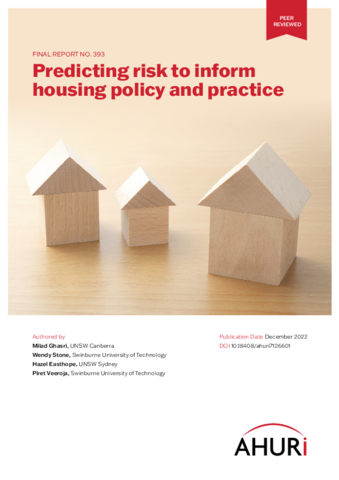This study explores how critical life events can be used to predict short-term, medium-term and long-term periods of housing stress for individuals and households, which might, in turn, lead to further housing and related forms of disadvantage and support needs. It considers how the identification of ‘risk pathways’ support an early intervention model of housing assistance for different population groups.
Critical life events experienced by individual household members—or households as a unit—can result in housing shocks. These critical life events include positive events—for example, partnership formation, birth of child, promotion at work—as well as negative events.
Negative events typically have a negative effect on household income—for example, separation or divorce, unexpected job loss and acute health conditions. They can be short-term or long-term in duration; can be planned or unanticipated; and can have acute or chronic impacts on housing and living arrangements and other spheres of life. The resulting ‘housing shocks’ can include inability to afford rent or mortgage payments; eviction; overcrowding; or housing precarity. Many such shocks are underpinned by housing stress, in which household resources are inadequate to manage affordability pressures when combined with a critical life event.
The socio-demographic attributes of household members most vulnerable to entering into housing stress are young to early middle-aged adults (18–44 years); looking for work; or living in rental housing (including both private and social rental).
Understanding more about critical life events as contributors to housing stress can support policy development options that go beyond the usual administrative boundaries and support intersectional approaches to reducing housing stress.


